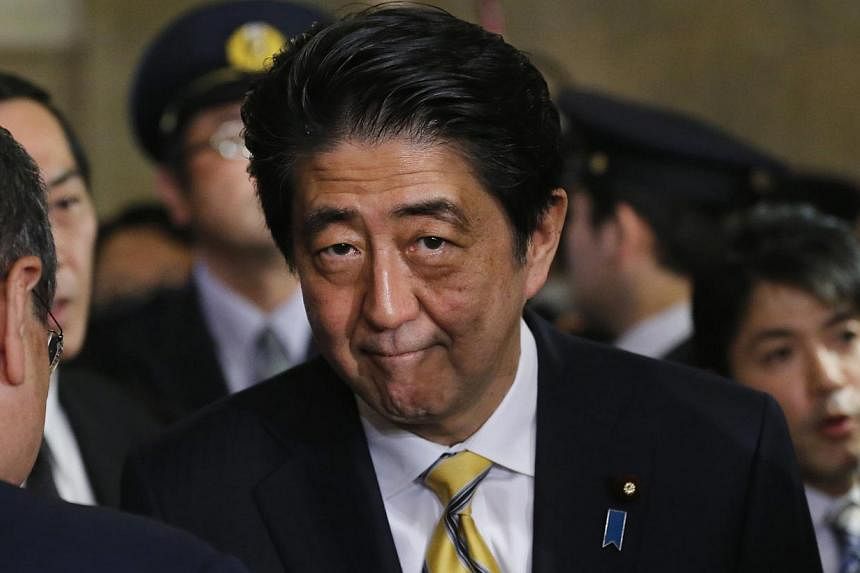TOKYO (Reuters) - Support for Japanese Prime Minister Shinzo Abe is at its lowest since he took office and more than a third of voters think his economic policies have failed, a survey showed on Friday, the day he is set to dissolve Parliament and call a snap election.
But more voters still say they will vote for Mr Abe, who came to power in December 2012 when his Liberal Democratic Party trounced the then-ruling Democratic Party of Japan in an election, than for the opposition.
Only 39 per cent of those polled by the Asahi Shimbun daily in a poll conducted Nov 18 to Nov 19 said they supported Mr Abe, down 3 percentage points from a survey done earlier this month and less than the 40 per cent who said they did not support him, as a stuttering economy has eroded his popularity.
No general election needs to be held until 2016, but Mr Abe wants to solidify his mandate while the opposition is weak and before his support rates slide further.
Mr Abe has said he would resign if his coalition - which holds two-thirds of the Lower House seats - fails to win a simple majority, an unlikely outcome given the disarray of the opposition parties. But losing too many seats could weaken him.
Chief Cabinet Secretary Yoshihide Suga played down the results of the survey and another by Kyodo news agency that found nearly two-thirds of voters do not understand why the election is being called.
"I believe we will be able to make people understand," he told a news conference.
The Asahi survey found that 37 per cent said they would vote for Mr Abe's Liberal Democrats in proportional representation districts against 13 per cent for the Democratic Party of Japan.
Mr Abe took office promising to revive Japan's economy with hyper-easy monetary policy, spending and reform. But data on Monday showed the economy slipped into recession in the third quarter as an April sales tax hike hit consumption.
A second rise to 10 per cent had been set for October 2015 as part of plans to rein in the nation's huge public debt, but Mr Abe said on Tuesday that he was postponing the unpopular hike and defended his economic policies as "the only way to go".
Only 30 per cent of people polled by the Asahi said they felt Abenomics had succeeded, while 39 per cent said they were a failure.

